‘Resist’ ‘read more books’ ‘understanding’ ‘cycle everywhere’ ‘teach someone something.’ How can we break the boundaries that are dividing us? Library by artist Sarah Christie at Southwark Cathedral strives to do just that. Comprised of a collection of shards etched with words which challenge power structures, systems of oppression, and divisions––each shard is an attempt to give voice.
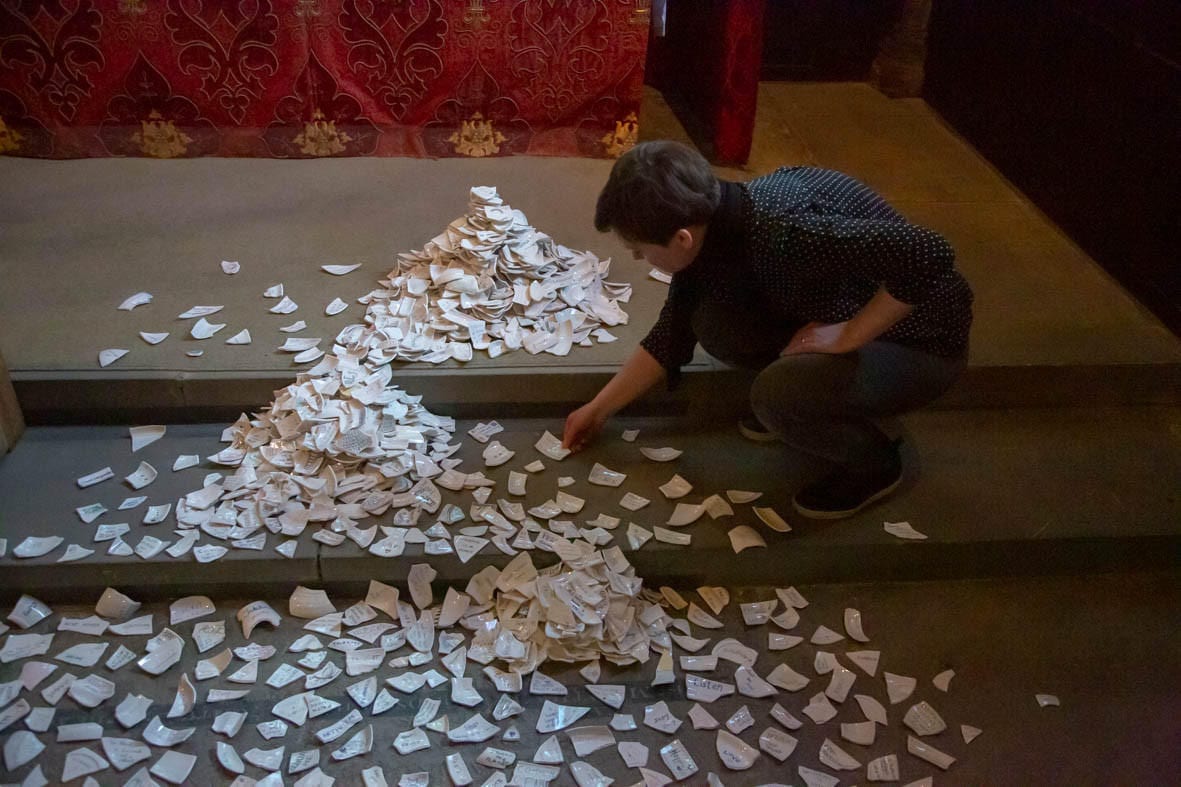
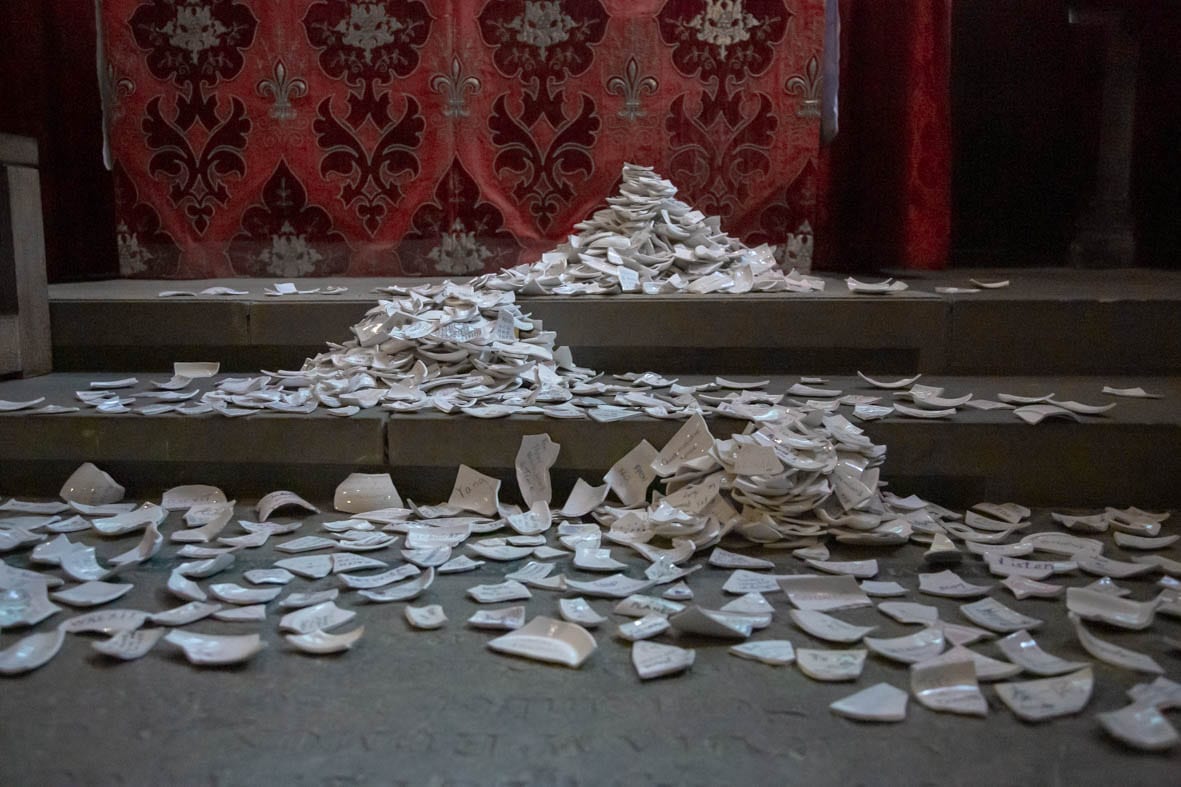
Beginning at the pivotal moment of the UK’s June 2016 ‘Brexit’ referendum, and ongoing through the country’s time of uncertainty and trepidation, the project reflects changing sentiments from the public, the cathedral writes.
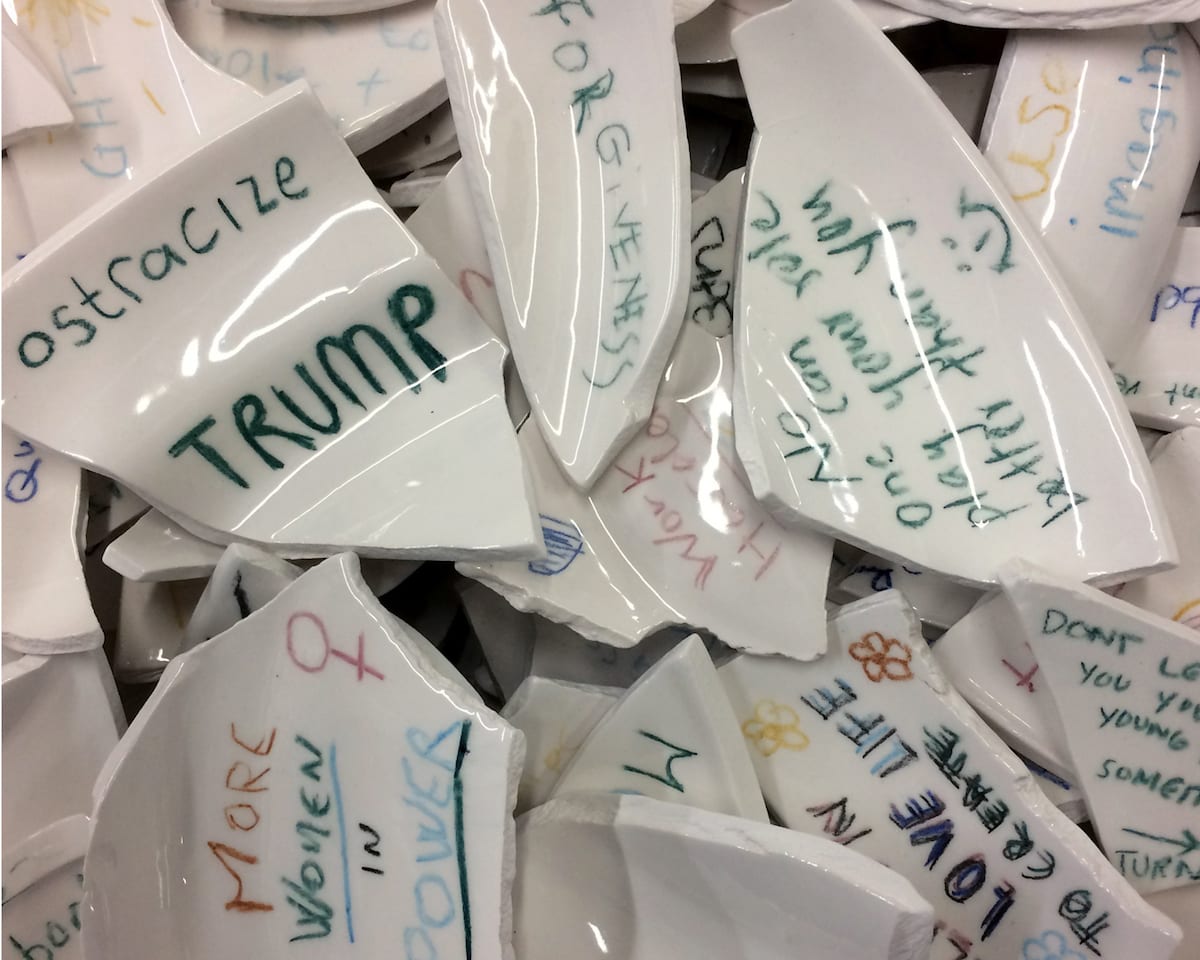
In Ancient Greece, people voted by writing on ‘ostraca’ or pot shards––hence the word ‘ostracize.’ Similaryly, the public has been invited to select a hand-made clay ostracon and offer their own words. Through this public interaction, Library has grown to the nearly 2000 contributions.
Many languages are represented: some are hopeful, affirming and reflective, others are questioning, fearful, doubtful, and many are conciliatory. Together they form a permanent record of an unsettling and unresolved period of time, while offering the possibility of conciliation and perspective.
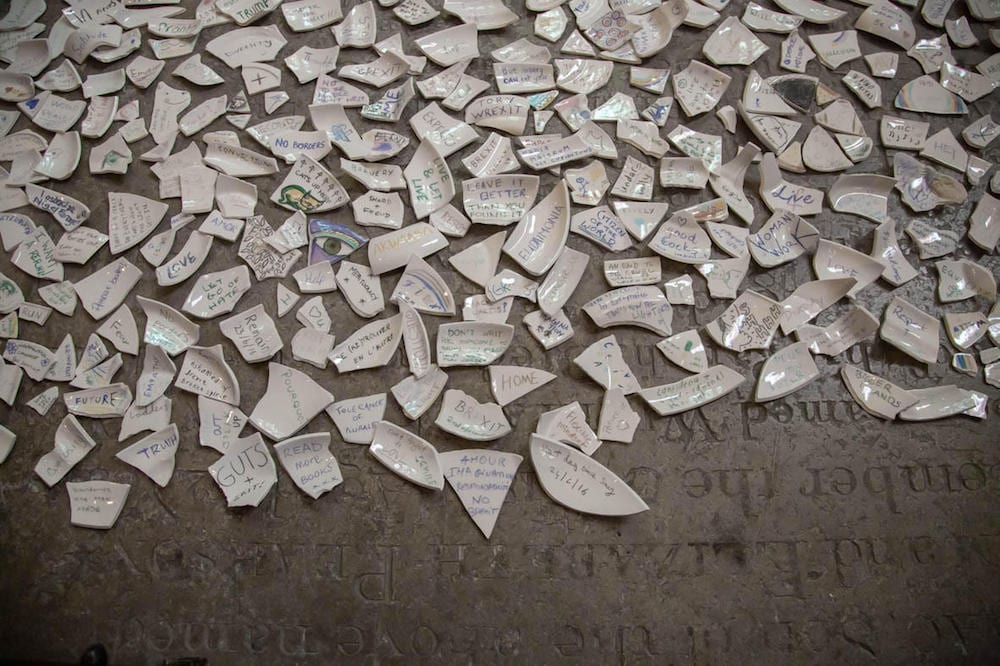
The following is a reflection on the project by the artist.
Library (2016-2019, glazed ceramic) has been a long project, and is the work of many hands and minds. I began it in the week of the EU referendum in June 2016, inviting the public to offer their words to break the social and physical boundaries that seemed to be reappearing and being reinforced by a divisive politics. A fair number seek to ostracise some of the architects of that politics. Many more, though, offer reflections, perspective, and a broader and more universal view on life, love, and what needs to be done in a time of uncertainty and trepidation.
Now in March 2019, as exit from the EU approaches like the dead end of a pot-holed road, the entire work of 2000 public contributions of words and drawings is on show in Southwark Cathedral, and it’s very exciting to be able to show the complete work in a place that welcomes all. This ancient and beautiful space invites reflection, stillness, and might perhaps help to encourage a longer view, a slower appraisal of where we are, resisting the impulse towards instant reaction.
‘Ostracon’ simply means potsherds. The ancient Greeks used them for voting: ‘ostracising’ unpopular figures from Athens. Many ancient cultures used them to convey messages or instructions, similar to letters, or text messages, and their longevity teaches us histories of those who came before. I made the the ostracon by hand, casting around 200 bowls, breaking them into sherds before firing them, and then glazing each one to render everyone’s words permanent, but Library is very much a collective work and it is the contributions of the public – diverse in subject matter, languages, perspectives – that make the work live.
Sarah Christie
Follow the artist on Instagram or Twitter.
About the artist: Sarah Christie is an artist exploring ideas around touch, physical presence and forms of contact though an interdisciplinary practice that crosses boundaries with art, craft and science. Her work centers around clay and drawing, exploring movement, gesture and mark-making. She is a visiting artist at Imperial College Medical School, teaching observation skills and sculpture. Frequently engaging with material and elemental agents, her work often invites participation or collaboration.
Images copyright Steve Mepsted
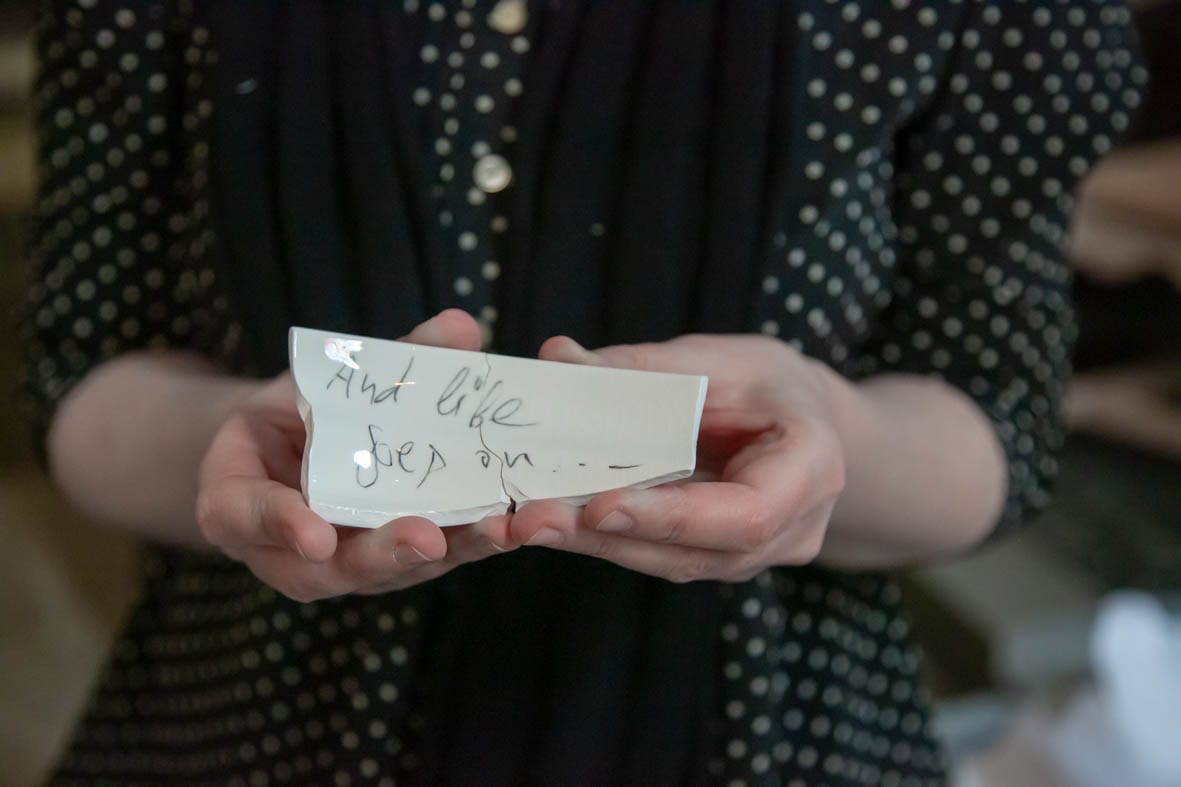
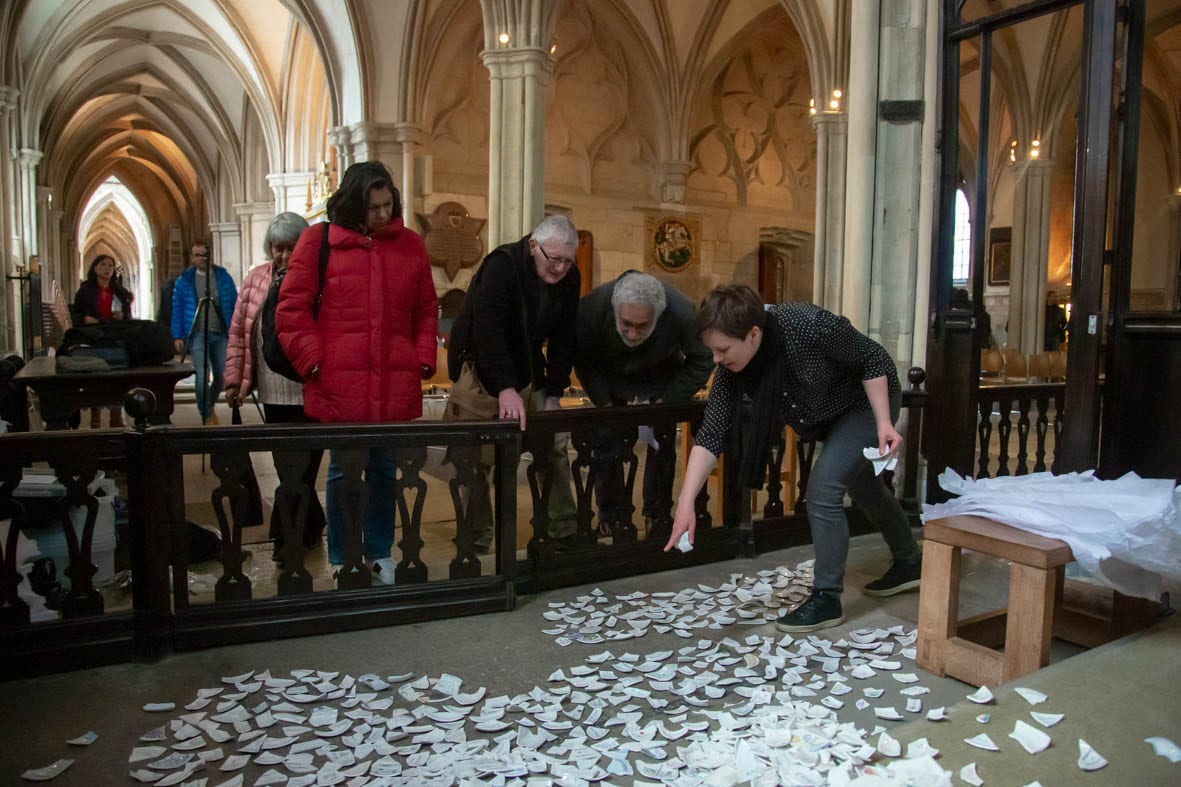
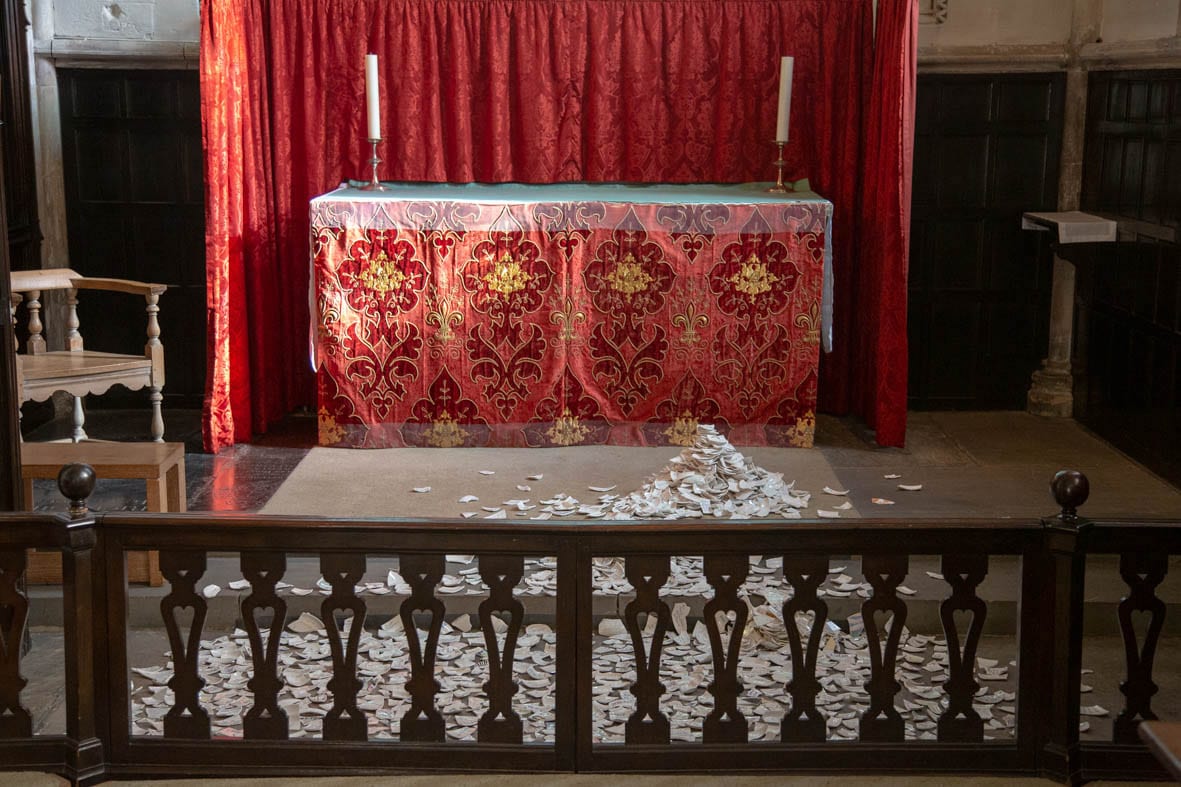
Love or loathe this project from the world of contemporary ceramic art and contemporary ceramics? Share your thoughts in the comments section below.
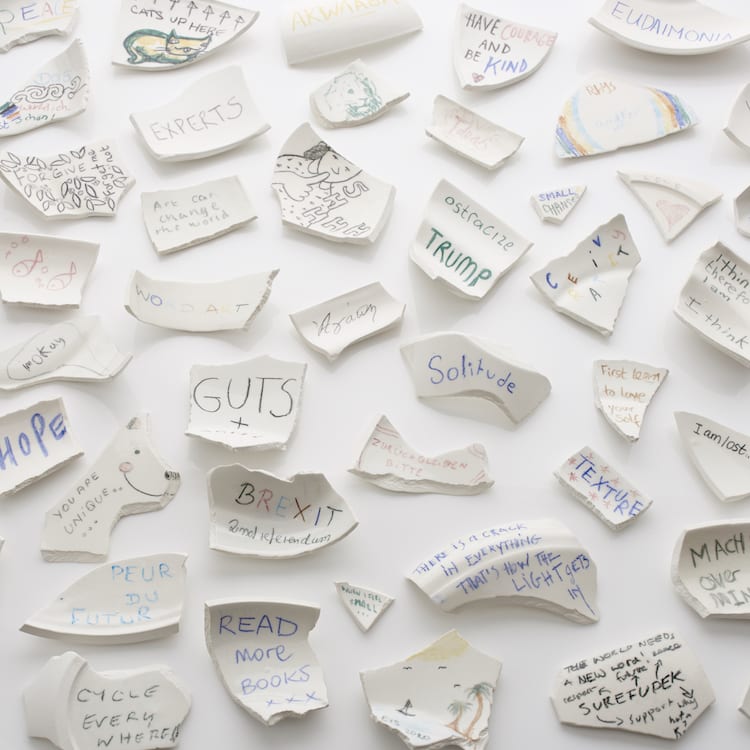
Add your valued opinion to this post.